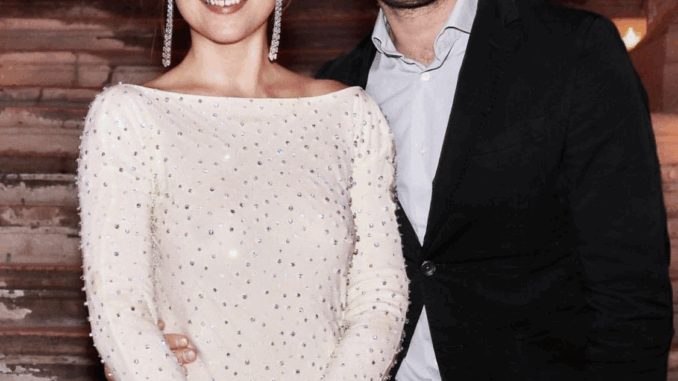
It started like a love story — not between the actors, but between the actors and their fans. When Fifty Shades of Grey exploded into theaters in 2015, the fandom was an unstoppable force. Social media overflowed with fan edits, interview compilations, and slow-motion gifs of every glance between Jamie Dornan and Dakota Johnson. They were the perfect fantasy couple, the living embodiment of Christian Grey and Anastasia Steele.
But somewhere between the first movie and the franchise finale, the energy shifted. The adoration curdled. What began as an intoxicating obsession turned into something darker — a slow, collective disillusionment that would ultimately pit the stars against the very people who had made them icons. By the end, the fandom wasn’t just disappointed. They were angry.
The turning point wasn’t a single scandal but a series of small, stinging moments that eroded the glossy illusion. Fans first began to notice a chill during the Fifty Shades Darker press tour. The playful, flirtatious banter that once lit up interviews gave way to clipped responses and awkward silences. Where there had once been effortless chemistry in press junkets, there was now a visible, almost tangible distance. People online speculated: Had they fought? Was something wrong?
Then came the first public crack in the façade. At a fan Q&A in Los Angeles, someone asked Dornan to sign a framed still of him and Johnson from one of the movie’s most intimate scenes. His response stunned the room: “I’m not signing anything from those scenes. That’s not me — that’s a character, and you need to remember that.” The tension was palpable. The clip hit Twitter within hours, sparking heated debates between fans who defended him and those who accused him of “spitting in the face” of the fandom.
Johnson didn’t help matters when, during a European press stop, she was asked about fan theories that she and Dornan shared a “real-life connection.” Instead of dodging the question with charm, she smirked and replied, “It’s called acting. We’re not in high school.” While some applauded her honesty, others saw it as a slap at the audience’s investment in the on-screen romance.
By the time Fifty Shades Freed rolled around, the dynamic between the stars and their fanbase had shifted from passionate devotion to uneasy tension. Meet-and-greets became increasingly rare, and when they did happen, both actors seemed visibly guarded. Gone were the playful inside jokes and lingering photo ops. In their place were polite, minimal interactions — professional, but cold.
Online, the discontent snowballed. Fan accounts that once spent hours creating edits of Dornan and Johnson began to post long threads dissecting every perceived slight, every offhand comment that hinted at disdain. Hashtags like #NotMyChristian and #AnaDeservedBetter trended sporadically. Even mainstream entertainment outlets began running stories about the “strained” relationship between the franchise’s leads and their fans.

The real breaking point came after an incident at a major awards afterparty. A small group of Fifty Shades superfans had managed to gain access to the event, hoping for a quick photo or autograph. According to multiple eyewitnesses, Dornan, upon being approached, shook his head and reportedly muttered, “Not tonight. I’ve had enough of this.” Johnson, standing nearby, didn’t intervene — in fact, she walked away. Whether it was exhaustion, irritation, or genuine resentment, the moment went viral within hours. The fan who posted the account of the exchange described feeling “humiliated,” and the story spread across forums and gossip pages like wildfire.
After that night, the backlash solidified. The fandom split into factions: those who argued the actors were entitled to boundaries after years of invasive attention, and those who felt betrayed, claiming the stars had “forgotten who put them on the map.” The once-united, fiercely loyal fan community became a battleground of accusations, defenses, and endless receipts.
For Dornan and Johnson, the fallout was undeniable. Promotional appearances became strictly managed, interviews were heavily vetted, and neither star engaged directly with Fifty Shades fans on social media anymore. It was as if they had quietly closed the door on that chapter — not just on the franchise, but on the people who had worshipped them.
Looking back, the implosion of the Fifty Shades fan relationship feels almost inevitable. The franchise thrived on fantasy, on the intoxicating blend of intimacy and escapism. But fantasy is fragile. The moment the curtain lifted and the illusion cracked, it was only a matter of time before obsession gave way to outrage. And in the end, the fans didn’t just lose Christian and Ana — they lost the idea that their stars had ever been theirs at all.